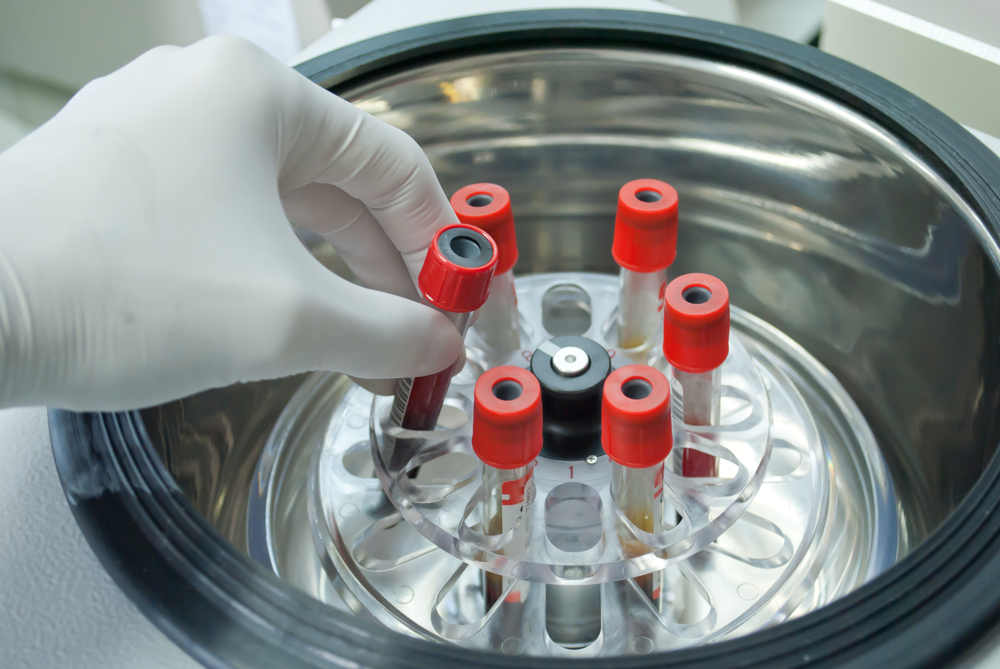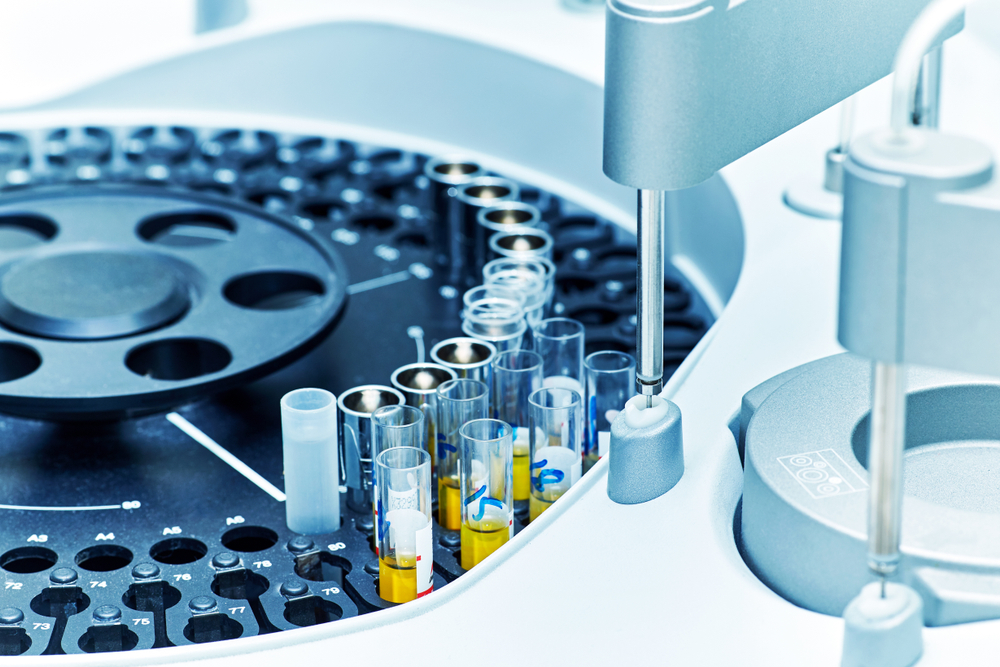
Simple Ways to Maintain Your Centrifuge
For laboratories across the biomedical, pharmaceutical, academic, and environmental industries, the centrifuge is a critical piece of equipment. Without it, many testing, processing, and research procedures would grind to a halt. While centrifuges are built to withstand demanding usage, regular centrifuge maintenance is essential to ensure long-term performance, safety, and accuracy.
At Cryostar Industries, we provide expert-level centrifuge calibration, repair, and preventative maintenance services for labs throughout New York and the tri-state area. However, there are also simple steps lab staff can take between professional visits to keep their equipment running optimally. In this guide, we’ll cover what a centrifuge is, why it’s so important, and how you can take care of your unit on a daily, weekly, and annual basis.
What is a Centrifuge & How does it Work?
A centrifuge is a lab device that uses centrifugal force—generated by high-speed rotation—to separate substances based on their density. When a tube of biological or chemical material is placed inside the centrifuge and spun rapidly, the denser components move outward toward the bottom of the tube, while lighter components rise to the top. This process helps researchers isolate specific materials for testing, analysis, or processing.
Common applications of centrifuges include:
- Separating plasma and red blood cells in clinical laboratories
- Isolating DNA and RNA during molecular biology procedures
- Harvesting cell pellets for microbiological or pharmaceutical research
- Clarifying liquids in water treatment and environmental testing
Because they are used in such sensitive and precise operations, it’s vital that centrifuges function with consistent accuracy and safety. Poorly maintained centrifuges can result in sample contamination, equipment breakdown, and even hazardous accidents.
Top 5 Tips for Maintaining Your Centrifuge
Maintaining your centrifuge doesn’t have to be complicated. Here are several simple, yet essential steps to help keep your centrifuge in peak condition:
1. Check for Damage Regularly
Before and after each use, visually inspect the centrifuge for signs of damage or wear to prevent costly repairs. Key components to examine include:
- Rotor and buckets – Look for cracks, dents, corrosion, or any imbalance
- Lid and safety lock – Ensure it closes securely and engages properly
- Tubes and adapters – Verify that they’re free from warping or breakage
Even minor cracks or corrosion can create imbalance, which may lead to catastrophic failure during operation. If you notice any signs of wear, take the unit out of service immediately and contact a lab equipment specialist like Cryostar for further evaluation.
2. Clean the Centrifuge After Every Use
Contamination is a major risk in any lab. After each use, carefully clean the rotor, buckets, and chamber with a non-corrosive, lab-safe disinfectant. Always consult your centrifuge’s user manual for specific cleaning instructions and avoid abrasive chemicals that could damage sensitive components.
Best practices for cleaning include:
- Wiping down with 70% isopropyl alcohol or neutral pH detergent
- Drying thoroughly to prevent corrosion or water spots
- Disinfecting any spills immediately, especially if working with blood, cultures, or hazardous materials
In addition, weekly deep cleaning and monthly inspections of internal components can help you catch early signs of damage or contamination buildup.
3. Lubricate Moving Parts as Recommended
Some centrifuges—particularly older or high-speed models—require periodic lubrication of moving parts. Rotating elements and hinges can become dry or sticky over time, which may affect performance and safety. Follow the manufacturer’s guidelines for lubrication intervals and only use recommended products.
4. Balance the Load Every Time
Running a centrifuge with unbalanced tubes is one of the fastest ways to damage the rotor and bearings. Always make sure:
- Each tube is paired with one of equal weight across from it
- You use the same type and size of tubes and adapters on both sides
- You close the lid and lock it before starting the spin cycle
Improperly balanced centrifuge loads can cause excessive vibration, increase wear and tear, and even lead to rotor failure.
5. Schedule Routine Calibration and Preventative Maintenance
No matter how diligent you are with cleaning and inspection, there are internal mechanisms and sensors that can only be assessed by a professional. That’s why annual or semi-annual centrifuge calibration and maintenance is so important.
During a typical service visit, Cryostar technicians will:
- Verify rotor speed and balance using calibration instruments
- Test internal sensors and safety features
- Inspect motor, wiring, and circuitry
- Lubricate and replace worn parts
- Issue calibration certificates for compliance
If your lab uses your centrifuge multiple times per day or processes sensitive clinical samples, we recommend scheduling two to three professional maintenance visits per year for optimal reliability.

Common Signs Your Centrifuge Needs Repair or Service
Even with excellent maintenance habits, centrifuges can still develop issues over time. Watch out for these signs that your centrifuge may need immediate attention:
- Unusual noises or vibration during operation
- Failure to reach or maintain correct RPM
- Loose or unresponsive lid locks
- Overheating or smell of burning
- Visible damage to rotor, buckets, or housing
If you experience any of these symptoms, discontinue use immediately and contact Cryostar for diagnosis and repair services.
Why Centrifuge Maintenance Matters for Lab Safety and Compliance
Maintaining your centrifuge isn’t just about performance—it’s also a matter of safety and regulatory compliance. Laboratories operating under GMP, GLP, ISO 17025, or CLIA regulations must keep detailed maintenance logs and calibration records to ensure instrument accuracy and prevent errors.
Routine maintenance protects against:
- Cross-contamination between samples
- Mechanical failure that can injure personnel
- Sample loss from rotor imbalances or improper speed
- Compliance violations during audits and inspections
Having a documented service and calibration schedule in place demonstrates due diligence and helps your lab remain audit-ready year-round.
How Cryostar Industries Supports Your Lab
At Cryostar Industries, we understand how essential centrifuges are to your lab’s workflow. Our expert technicians specialize in centrifuge calibration, certification, repair, and preventative maintenance for all major brands and models, including Thermo Fisher, Eppendorf, Beckman Coulter, and more.
We proudly serve research and healthcare facilities across New York City, Long Island, Westchester, New Jersey, and Connecticut. Whether you need a one-time rotor inspection or an ongoing maintenance contract, our team is here to help you reduce downtime and improve operational efficiency.
Services include:
- On-site equipment calibration and repair
- Preventative maintenance programs
- HEPA filter changes and environmental testing
- Compliance documentation and certification
Contact Cryostar today to schedule a consultation or to learn more about how we can support your lab with expert centrifuge services.
Conclusion: Protect Your Investment with Smart Centrifuge Maintenance<
Ultimately, a centrifuge is a complex and expensive instrument. Therefore, it’s sensible to do everything you can to keep it operating smoothly and efficiently. At Cryostar Industries, we can help you keep your centrifuge in excellent shape for the longest possible time.
| Call for Immediate Lab Services |
|---|
| Long Island, Nassau & Suffolk County Call: 516-333-4006 |
| The Bronx, Manhattan, Brooklyn, Queens, & Staten Island Call: 718-885-0833 |
| Albany & Southern New York State Call: 800-564-5513 |
| Piscataway, Northern & Central New Jersey Call: 800-564-5513 |
| Danbury Connecticut & Surrounding Areas Call: 203-748-7343 |
24/7 Emergency Service |